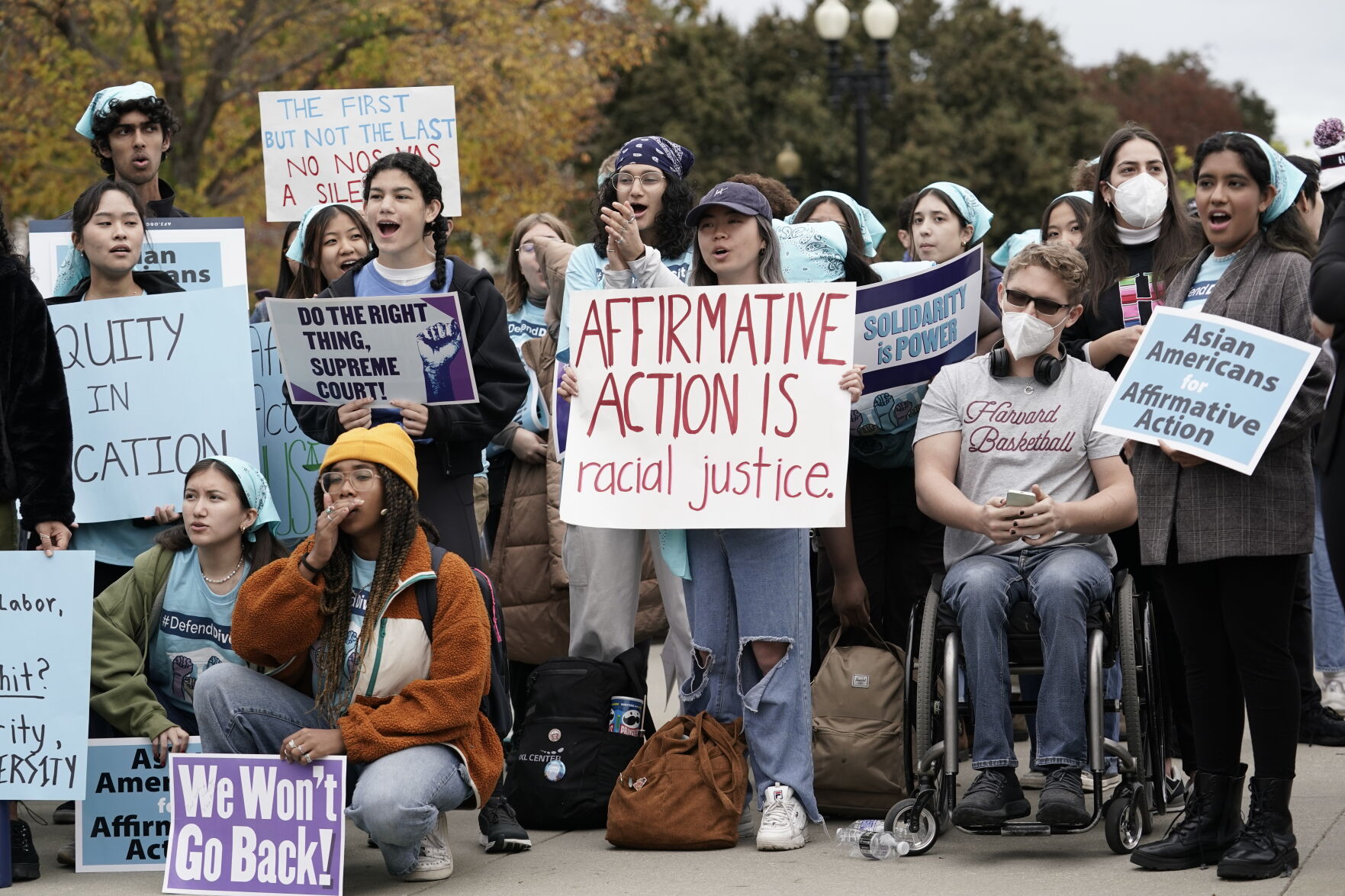WASHINGTON — The Supreme Court wrestled with persistent, difficult questions of race today, debating whether to end the use of affirmative action in higher education.
The justices scheduled at least an hour and forty minutes of arguments and were hearing from from six different lawyers in challenges to policies at the University of North Carolina and Harvard. Those policies consider race among many factors in evaluating applications for admission.
Following the overturning of the half-century precedent of Roe v. Wade in June, the cases offer a big new test of whether the court now dominated by conservatives will move the law to the right on another of the nation’s most contentious cultural issues.
Early in the arguments, liberal justices asked questions suggesting support for the schools’ policies. Justice Ketanji Brown Jackson, the court’s newest justice and its first Black female, said race was being used at the University of North Carolina as part of a broad review of applicants.
“There are 40 factors about all sorts of things that the admissions office is looking at. … They’re looking at the full person with all of these characteristics,” she said.
Justice Elena Kagan called universities the “pipelines to leadership in our society” and suggested that without affirmative action minority enrollment will drop.
“I thought part of what it meant to be an American and to believe in American pluralism is that actually our institutions, you know, are reflective of who we are as a people in all our variety,” she said.
The Supreme Court has twice upheld race-conscious college admissions programs in the past 19 years, including just six years ago.
But that was before the three appointees of President Donald Trump joined. Jackson was chosen this year by President Joe Biden.
Lower courts upheld the programs at both UNC and Harvard, rejecting claims that the schools discriminated against white and Asian-American applicants.
The cases are brought by conservative activist Edward Blum, who also was behind an earlier affirmative action challenge against the University of Texas as well as the case that led the court in 2013 to end the use of a key provision of the landmark Voting Rights Act.
Blum formed Students for Fair Admissions, which filed the lawsuits against both schools in 2014.
The group argues that the Constitution forbids the use of race in college admissions and calls for overturning earlier Supreme Court decisions that said otherwise.
Colleges and universities can use other, race-neutral ways to assemble a diverse student body, including by focusing on socioeconomic status and eliminating the preference for children of alumni, Students for Fair Admissions argues.
The schools contend that they use race in a limited way, but that eliminating it as a factor altogether would make it much harder to achieve a student body that looks like America.
The Biden administration is urging the court to preserve race-conscious admissions. The Trump administration had taken the opposite position in earlier stages of the cases.
UNC says its freshman class is about 65% white, 22% Asian American, 10% Black and 10% Hispanic. The numbers add to more than 100% because some students report belonging to more than one category, a school spokesman said.
White students are just over 40% of Harvard’s freshman class, the school said. The class also is just under 28% Asian American, 14% Black and 12% Latino.
Nine states already prohibit any consideration of race in admissions to public colleges and universities: Arizona, California, Florida, Georgia, Michigan, Nebraska, New Hampshire, Oklahoma and Washington.
In 2020, California voters easily rejected a ballot measure to bring back affirmative action.
Public opinion on the topic varies depending on how the question is asked. A Gallup Poll from 2021 found 62% of Americans in favor of affirmative action programs for racial minorities. But in a Pew Research Center survey in March, 74% of Americans, including majorities of Black and Latino respondents, said race and ethnicity should not factor into college admissions.
Jackson and Chief Justice John Roberts received their undergraduate and law degrees from Harvard. Two other justices went to law school there.
But Jackson is sitting out the Harvard case because she was until recently a member of an advisory governing board.
A decision in the affirmative action cases is not expected before late spring.


